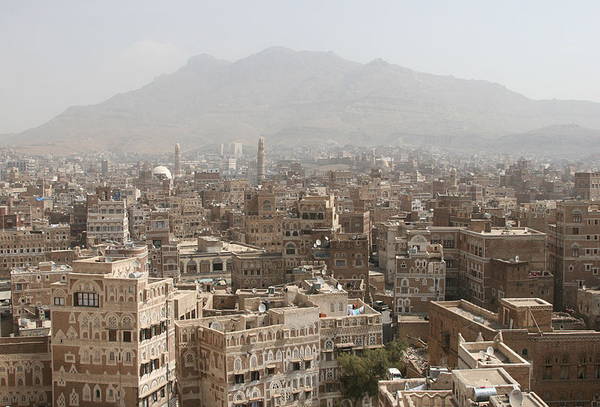by Ahmed Charai • October 1, 2018 at 5:15 pm
Despite hard fighting and air strikes from Saudi and United Arab Emirates warplanes, the Houthis still control about one-quarter of Yemen's sprawling desert lands, including its capital city, Sana'a.
The UAE Red Crescent Society recently distributed food aid in Southern Yemen, temporarily sparing some 1,000 families the horror of starvation. Sheikh Mohammed bin Zayed Al Nahyan, Crown Prince of Abu Dhabi and Deputy Supreme Commander of the UAE Armed Forces, directed the emergency response project.
Meanwhile, the Trump Administration, has quietly met the challenge. The U.S. has shipped more than $854 million in aid since the start of fiscal year 2017. The good news about the bad news is that the U.S. in engaged and helping.

In a bid to topple the elected government of a U.S. ally, Yemen, Iran funded Houthi rebels to seize much of the country in 2015. The war has continued. (Wikimedia Commons)
"The world's worst humanitarian crisis," said U.N. World Food Program Executive Director David Beasley, is in Yemen.
He is not exaggerating. More than 75% of the country needs humanitarian aid—a greater percentage than any other nation on Earth, according to the U.S. Department of State
Some 18 million Yemenis (out of a total population of 22 million) are hungry, homeless and increasingly hopeless.
Civil war has driven them from their homes, burned their schools and bombed their hospitals. In the markets, the shelves are empty as few trucks arrive from sea ports and rebel roadblocks menace the few deliverymen that dare to take the roads into the sun-scorched interior. As a result, mothers, some too hungry to nurse their children, have flooded into refugee centers, overwhelming
international aid workers. The men, those who have not been murdered or maimed by war, wait in the shade of U.N. tents for food and medicine that too often is not enough.
No comments:
Post a Comment